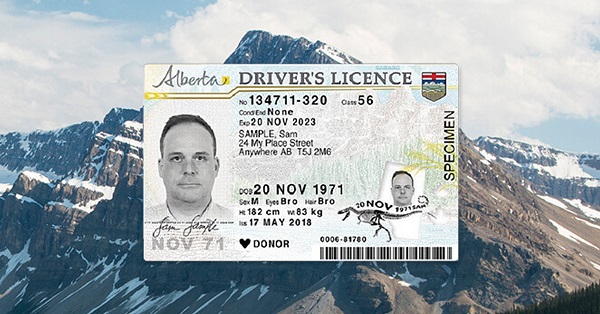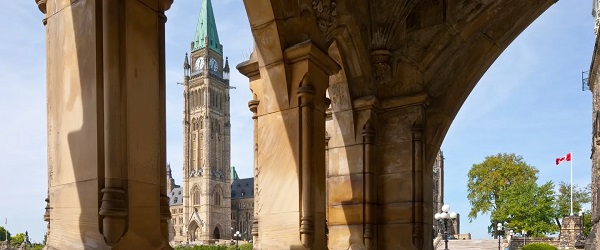Alberta
Canadian federal court overturns Trudeau gov’t ban on single-use plastics

From LifeSiteNews
The Federal Court ruled in favor of the provinces of Alberta and Saskatchewan, declaring that Prime Minister Justin Trudeau’s government overstepped its authority by classifying plastic as ‘toxic’ and banning all single-use plastic items, like straws
The Federal Court of Canada has overturned the Trudeau government’s ban on single-use plastic, calling it “unreasonable and unconstitutional.”
On November 16, the Federal Court ruled in favor of the provinces of Alberta and Saskatchewan, declaring that Prime Minister Justin Trudeau’s government overstepped its authority by classifying plastic as “toxic” and banning all single-use plastic items, like straws.
“There is no reasonable apprehension that all listed PMI [Plastic Manufactured Items] are harmful,” the decision read.
The decision came after a lawsuit filed a little over a year ago by Alberta and Saskatchewan. The ruling declared that listing all plastics on the List of Toxic Substances was too broad and “poses a threat to the balance of federalism as it does not restrict regulation to only those (plastics) that truly have the potential to cause harm to the environment.”
The court further reminded the Trudeau federal government of the autonomy of the provinces, saying, “Cooperative federalism recognizes that the provincial government and federal government are coordinate – the provinces are not subordinate to the federal government. A federal head of power cannot be given a scope that would eviscerate a provincial legislative competence.”
Essentially, the ruling overturned Trudeau’s 2022 law which outlawed manufacturing or importing plastic straws, cutlery, and checkout bags on the grounds of government claims that plastic was having a negative effect on the oceans. In reality, most plastic pollution in the oceans comes from a few countries, like India and China, which dump waste directly on beaches or rivers.
If not for the Federal Court’s ruling, the sale of these plastic products would have also been illegal by the end of this year.
RELATED: Trudeau gov’t-mandated paper straws may be worse for environment than plastic, study finds
The Government of Canada had estimated the average Canadian would pay at least $50 each in the higher costs for alternatives to traditional plastic products. Meanwhile, an August study revealed that paper straws may have a worse impact on humans and the environment than standard plastic straws as they contain “forever chemicals” which take thousands of years to break down.
Alberta Premier Danielle Smith celebrated the Court’s decision, saying, “Alberta wins again – Federal Court says Liberal plastic ban ‘both unreasonable and unconstitutional.’”
Smith compared the ruling to the Supreme Court’s recent announcement that Bill C-69, dubbed the “no-more pipelines” bill, is “mostly unconstitutional.” The decision returned jurisdiction over the pipelines to provincial governments.
“Like Bill C-69, the federal government’s decision to unilaterally label perfectly safe plastic consumer products as ‘toxic’ has had wide-ranging consequences for Alberta’s economic interests and has put thousands of jobs and billions of investments at risk,” Smith explained.
“It’s time for the federal government to listen to the courts and to Canadians,” she added. “We urge them to not appeal this decision, and to immediately delete ‘plastic manufactured items’ from Schedule 1 of the current Canadian Environmental Protection Act so as to avoid further need of legal action by Alberta and other provinces.”
Smith’s request comes as Environment Minister Steven Guilbeault announced Thursday that the federal government is “strongly considering an appeal” of the decision.
“Canadians have been loud and clear that they want action to keep plastic out of our environment,” he claimed. “We will have more to say on next steps soon.”
While Guilbeault attests that Canadians have been “loud and clear” in their desire to eliminate plastic, he is seemingly ignoring the growing number of Canadians calling for the Trudeau government to be replaced.
According to a November survey by Abacus Data, 84% of Canadians want a change in government, leaving only 16% of Canadians content with Trudeau and his Liberal government.
Alberta
Alberta’s Justice and Public Safety Ministers shoot down Ottawa’s firearm buyback failure
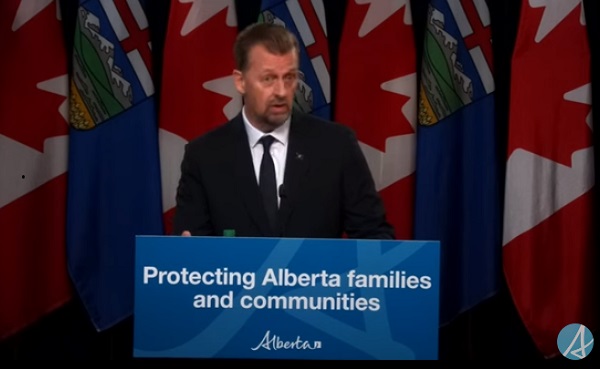
Minister of Justice Mickey Amery and Minister of Public Safety and Emergency Services Mike Ellis issued the following statement on the federal government’s gun grab:
“Since the federal government first introduced its firearms confiscation scheme, Alberta’s government has been clear that we oppose any policy that undermines law-abiding firearms owners, including ineffective and expensive buyback programs that do not combat the criminal use of firearms.
“Albertans and Canadians have been rightfully concerned that attacking law-abiding firearms owners does not address the spike in illegal gun crime under the federal Liberal government.
“This confiscation scheme is not about public safety. The federal Minister of Public Safety said himself that he doesn’t think that the police can properly enforce the program and acknowledged that the Ontario Provincial Police will not enforce the program in that province. Further, the minister has made it very clear that they are only keeping this program to satisfy Liberal voters in Quebec.
“The Prime Minister told Canadians in a Sept. 10 radio appearance that this buyback program is a ‘voluntary return for compensation’ and is about getting crime down and keeping communities safe. Not to mention leaked audio that shows the minister himself is doubtful this policy will be effective or enforced. Now, the federal government has changed its tune.
“Alberta’s government has already taken action by stopping municipalities from implementing arbitrary patchwork firearms policies and preventing anyone in Alberta from seizing, storing or destroying firearms without a license from Alberta’s Chief Firearms Officer.
“Simply put, Alberta’s government will not be enforcing this gun grab, and we will make clear to law enforcement that this is not an enforcement priority. We expect them to focus their time and resources on real provincial policing priorities – like violent criminals, not hunters and sport shooters.
“We will also continue to advocate for Alberta to regulate the legal use of firearms so Albertans can continue to own, collect and use firearms for sport shooting and hunting.
“The Liberal government should end this program, which will waste over $700 million and counting and directly attacks firearms owners, and instead prioritize measures that will actually keep Canadians safe.”
Alberta
Federal policies continue to block oil pipelines
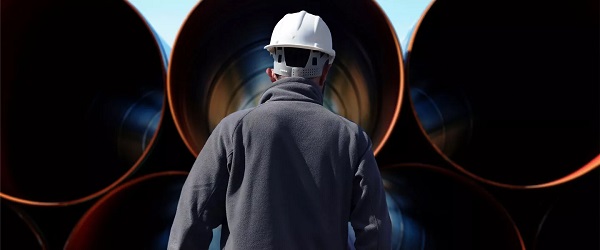
From the Fraser Institute
By Tegan Hill and Elmira Aliakbari
Prime Minister Carney’s recently released list of five projects—which the government deems to be in the national interest and will expedite—doesn’t include a new oil pipeline for western Canada in general or Alberta in particular. The reason given was that no private developer stepped forward to finance or build one. But the reason for that is not a mystery: Justin Trudeau’s damaging energy policies continue to drive away oil and gas investment even though his successor campaigned on a different, more pragmatic approach. It’s no wonder Albertans are frustrated.
Promising to make Canada the world’s leading “energy superpower,” the Carney government in the spring introduced Bill C-5, the “Building Canada Act,” to give the federal cabinet sweeping powers to circumvent existing laws and regulations for projects deemed to be in the “national interest.” In effect, cabinet and the prime minister are empowered to pick winners and losers based on vague criteria and priorities. But while specific projects will be expedited, so far nothing has been done to undo the damaging federal policies that have hamstrung Canada’s energy sector over the last decade.
Trudeau-era changes to the regulatory system for large infrastructure projects included: Bill C-69 (the federal “Impact Assessment Act”); the West Coast tanker ban (as spelled out in federal Bill C-48); and the federal cap imposed exclusively on oil and gas emissions. These have hindered energy investment and development and impeded prosperity, not only in energy-producing provinces, but across the country.
The Energy East and Eastern Mainline pipelines from Alberta and Saskatchewan to the east coast would have expanded Canada’s access to European markets. But the Trudeau government rendered the projects (Energy East and the Eastern Mainline) economically unprofitable by introducing new regulatory hurdles that ultimately forced TransCanada to withdraw from the project.
A year after taking office, the Trudeau government simply cancelled the Northern Gateway pipeline, an already approved $7.9 billion project that would have transported crude oil from Alberta to the B.C. coast, thus expanding Canada’s access to Asian markets. As for Trans Mountain, the one pipeline project that did survive the Trudeau years, after the private investor was frightened off by regulatory hurdles and delays and the federal government took over, costs sky-rocketed to $34 billion—more than six times the original estimate.
With policies like these still in place, it’s no wonder investors aren’t lining up to put big money into Canadian oil and gas. Just how great the discouragement has been is indicated by the 56 per cent inflation-adjusted decline in overall investment in the oil and gas sector between 2014 and 2023 (from $84.0 billion to $37.2 billion).
That decline in investment has had and will continue to have big consequences for the western provinces, particularly Alberta, where energy is a key part of the economy. But it would be a mistake to think the costs are limited to Alberta. From 2007 to 2022, Albertans’ net contribution to federal finances (total federal taxes they paid minus federal money spent on or transferred to them) was $244.6 billion. A strong Alberta helps keep taxes lower and fund public services across Canada.
Canada urgently needs new oil pipelines to tidewater. The U.S. is currently the destination for 97 per cent of our oil exports. This heavy reliance on a single customer leaves us exposed to policy shifts in Washington, such as the recent threat of tariffs on Canadian energy. Expanding pipeline infrastructure both westward and eastward would help diversify our export market into Asia and Europe, as well as strengthen our energy security.
Prime Minister Carney’s short list of projects is another blow to western Canada, and especially Alberta. There’s an obvious reason no private developer has stepped forward to finance or build a new oil pipeline: the Trudeau government’s damaging energy policies. The federal government needs to undo these policies and allow the private sector to make Canada an energy superpower.
-

 Bruce Dowbiggin2 days ago
Bruce Dowbiggin2 days agoChoking The Night Away: Can Blue Jays/ Tigers Recover?
-

 Opinion2 days ago
Opinion2 days agoApproximately 100,000 people join Charlie Kirk’s wife Erika, President Trump, VP JD Vance, RFK Jr., for Charlie’s memorial service
-

 armed forces2 days ago
armed forces2 days agoSecretive Lockheed Martin Skunk Works reveals latest high-tech military drone
-
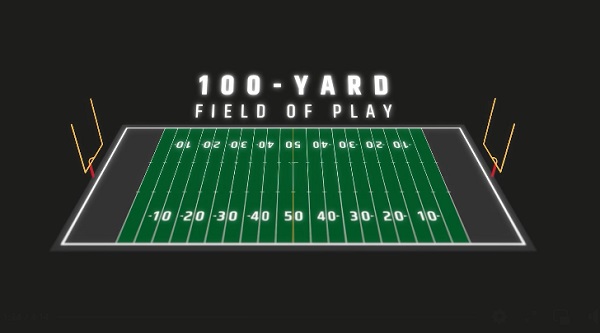
 Sports2 days ago
Sports2 days agoCFL Evolution! Canadian Football League moving field goal posts, changing “rouge” rules, shrinking end zone and field size!
-

 Focal Point1 day ago
Focal Point1 day agoWhite House Announces Tylenol–Autism Link, Opens Door to Vaccines
-
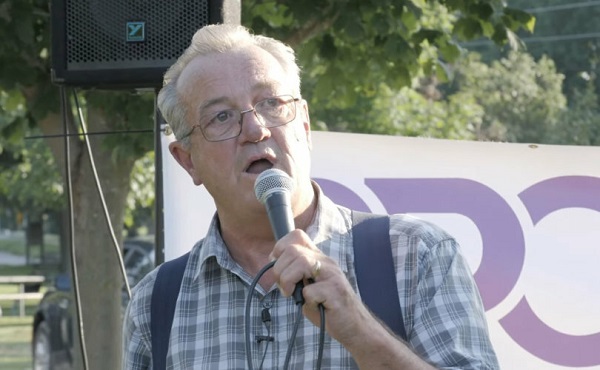
 COVID-191 day ago
COVID-191 day agoCOVID charges dropped against Canadian politician who opposed mandates, lockdowns
-

 National2 days ago
National2 days agoCanada Recognizes Palestine, Allows Taiwan to Be Sidelined: A Tale of Two Standards in Ottawa’s Foreign Policy
-

 Alberta2 days ago
Alberta2 days agoAlberta preparing to protect pro-family laws by invoking notwithstanding clause: leaked memo



